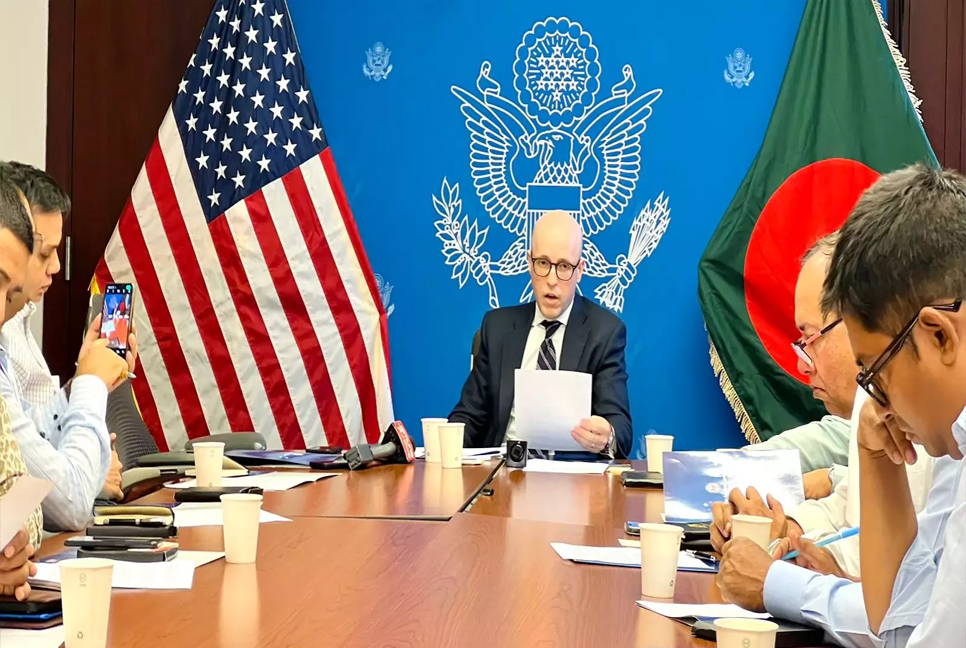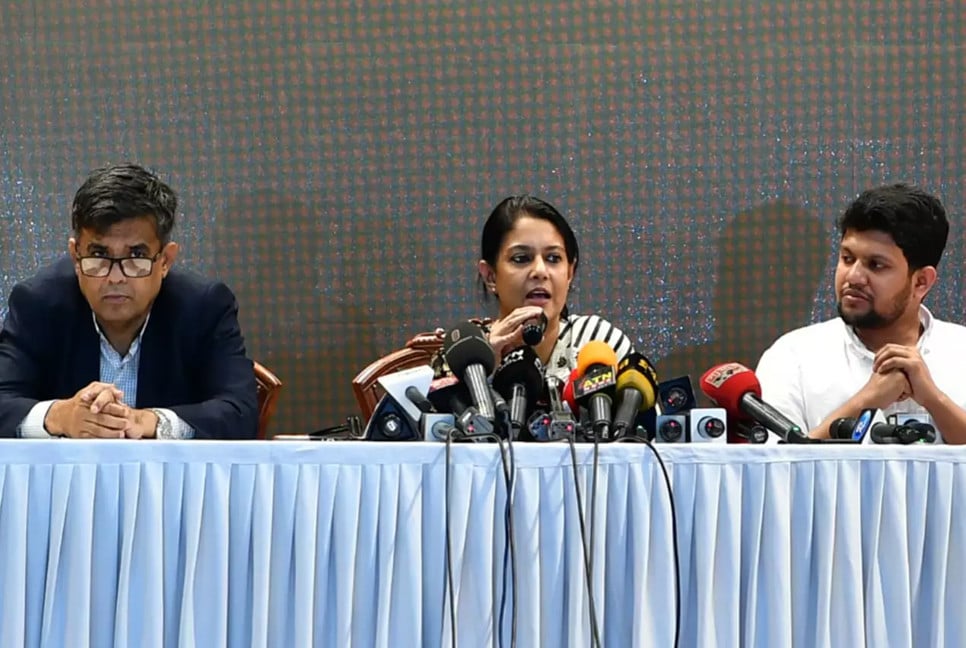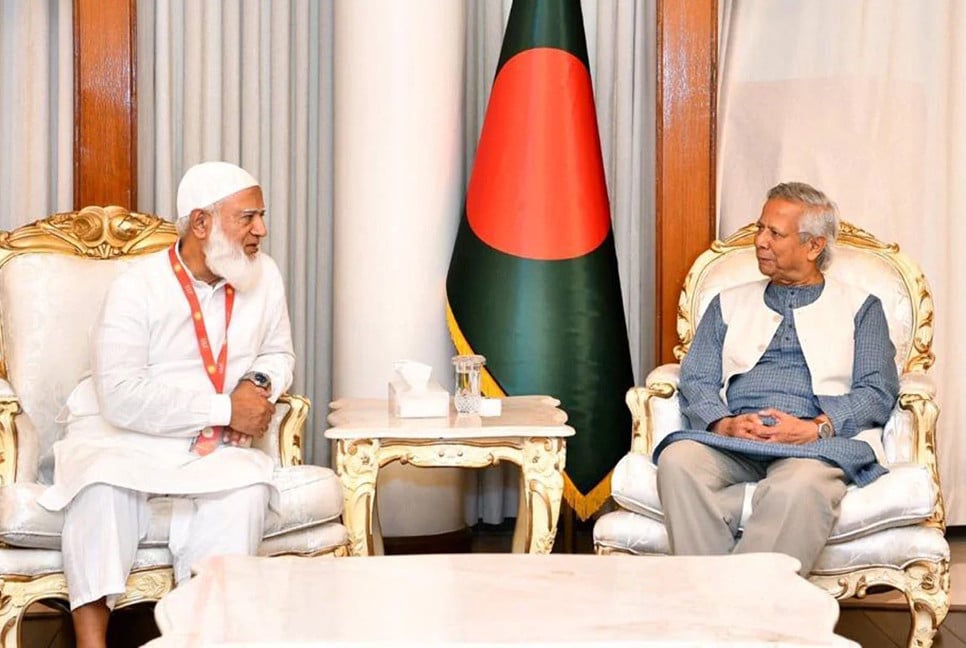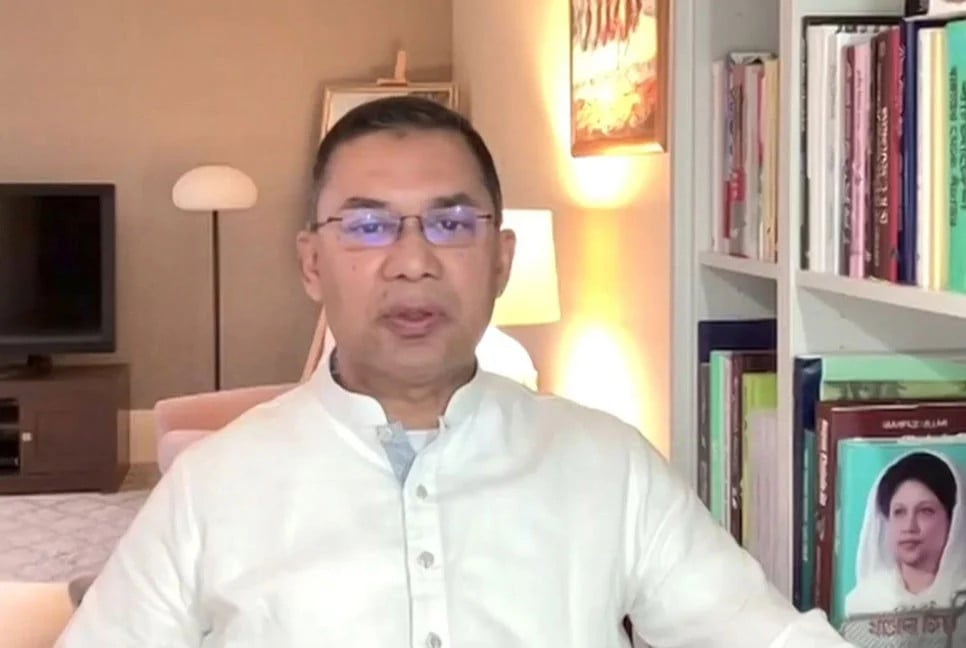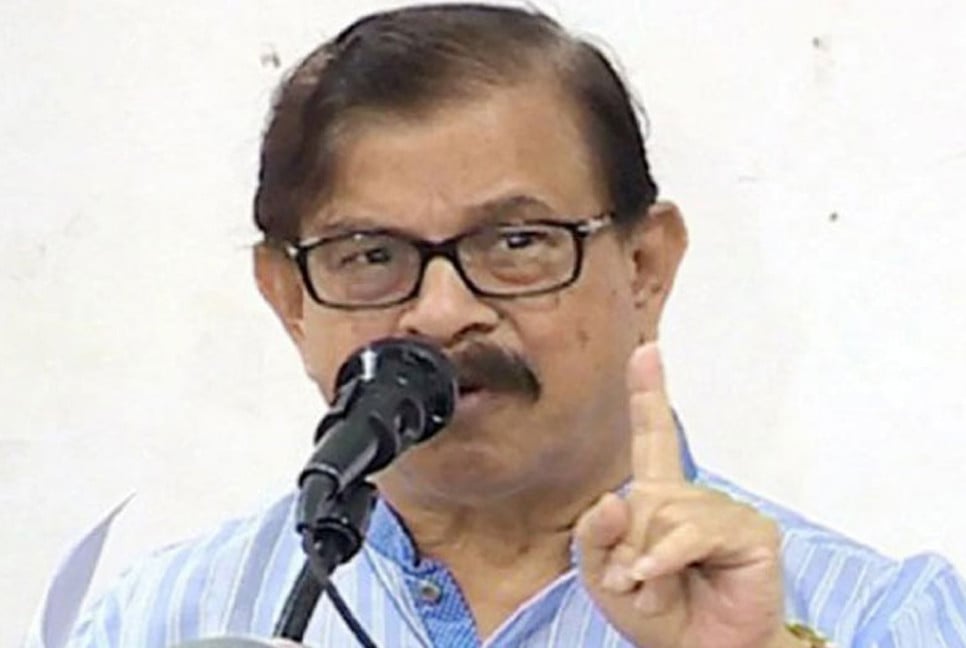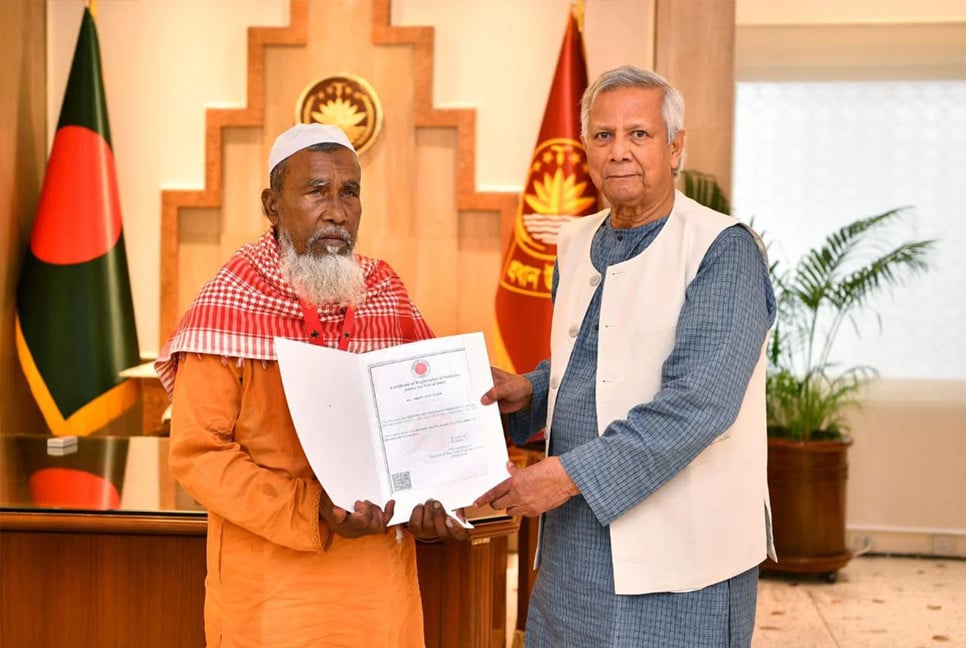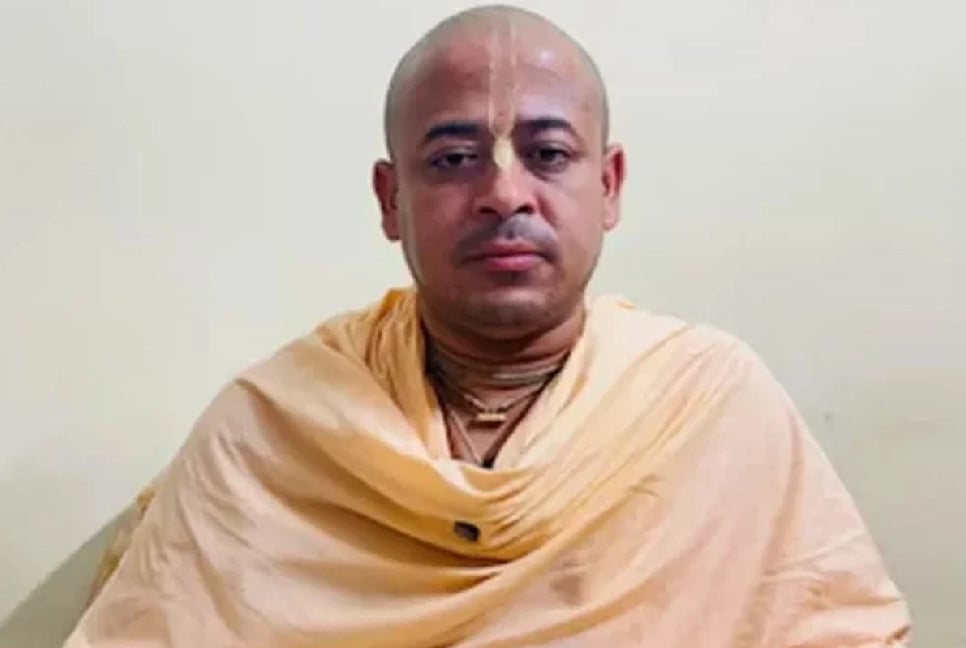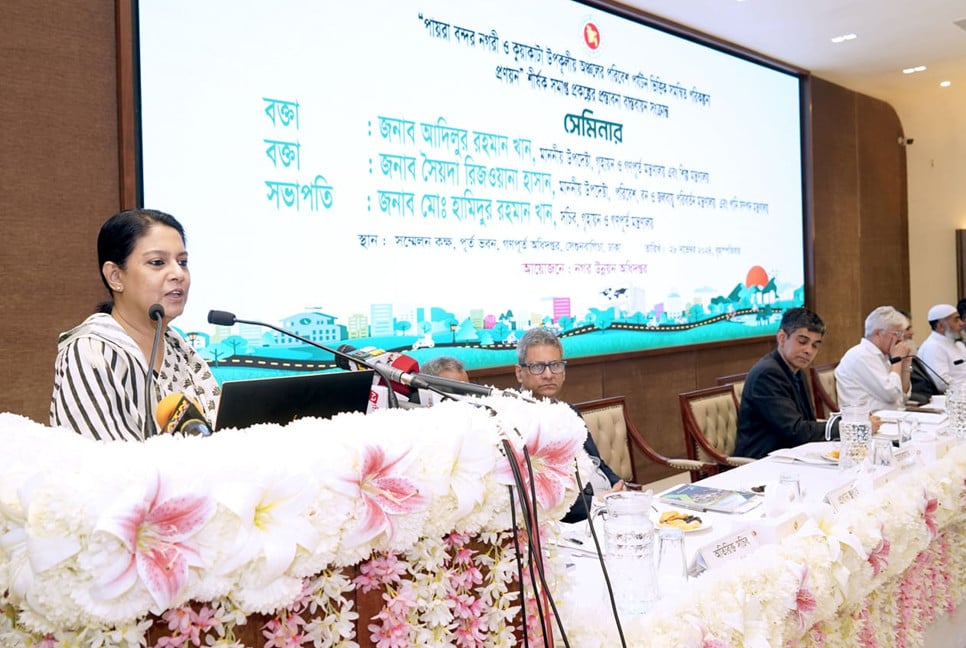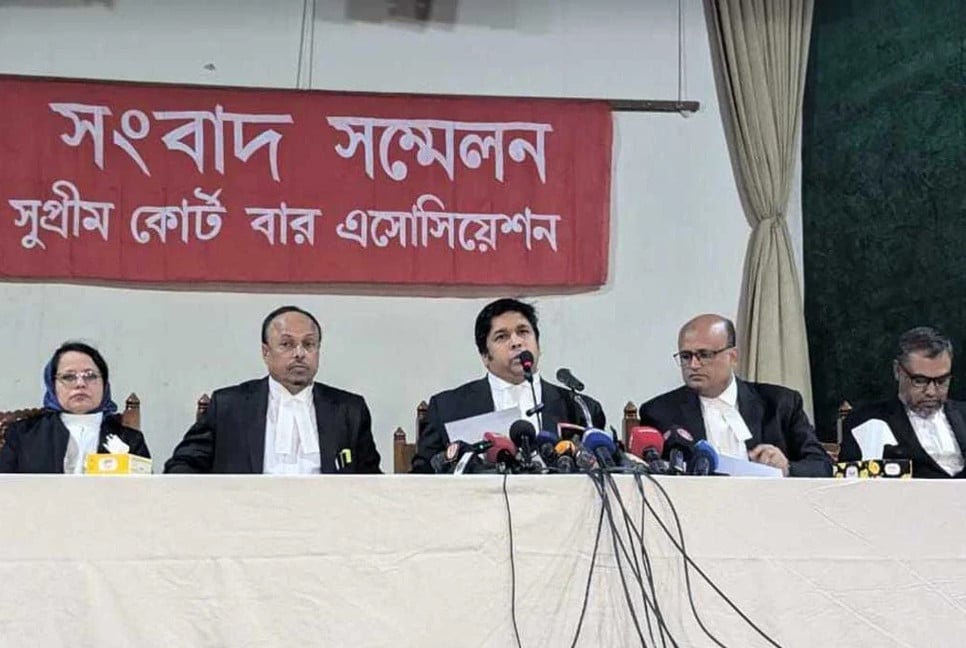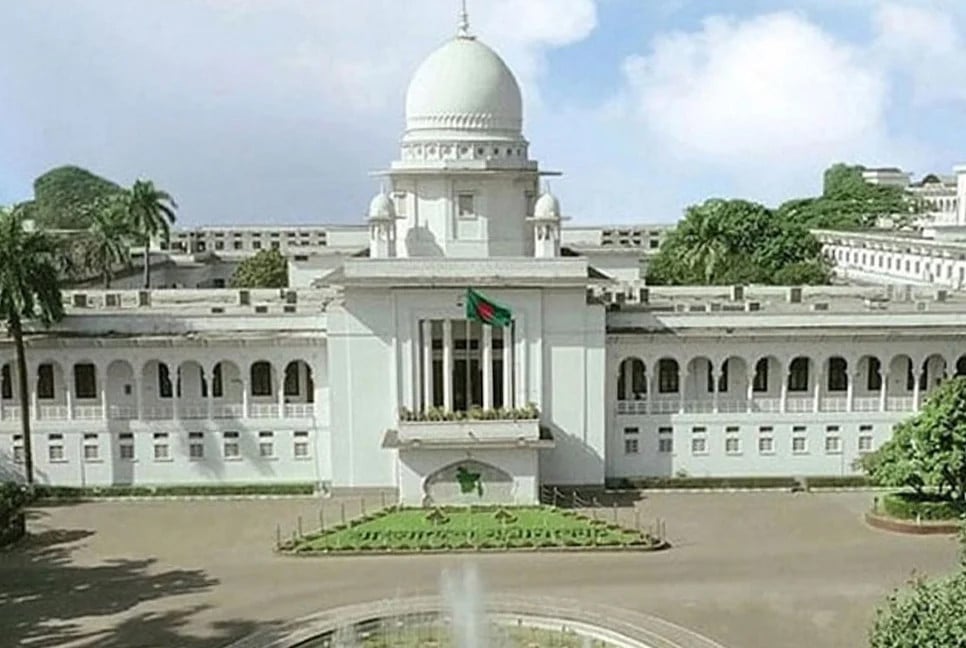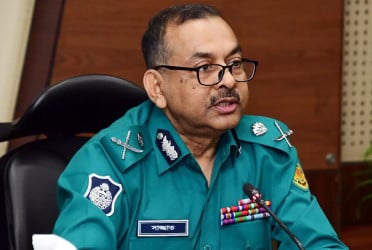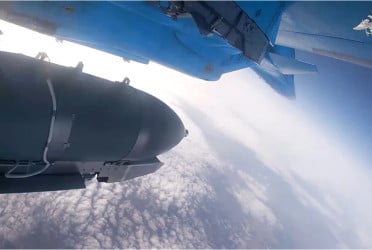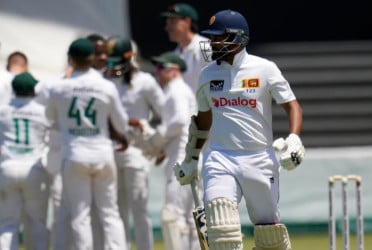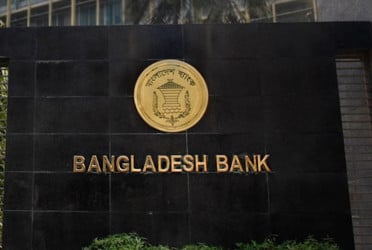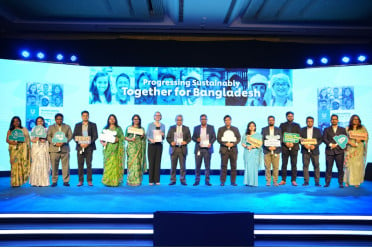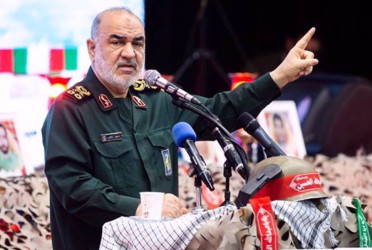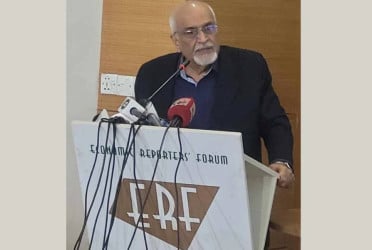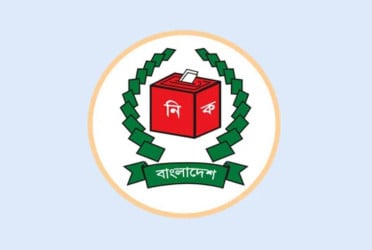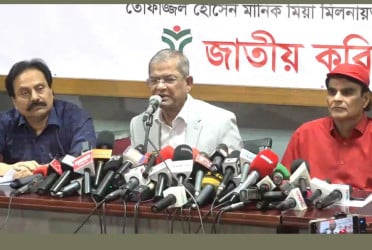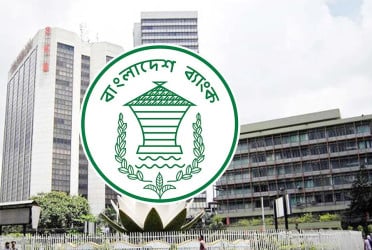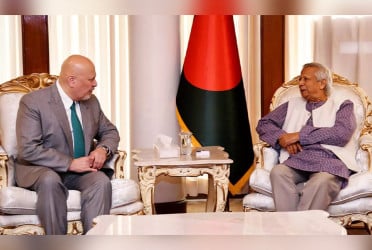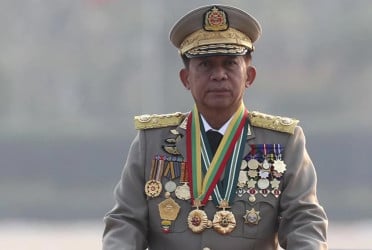The United States wants Bangladesh to become a “net security provider” in the region in a “responsible way”, and wants Bangladesh to be able to respond to natural disasters and other issues positively with its growing capabilities.
“Bangladesh has made a lot of progress over the years, and we are proud to be part of that effort. We would hope that the Bangladesh government sees the Indo Pacific Strategy (IPS) as an opportunity to cooperate with us and our partners to help address some of Bangladesh's security concerns,” said Maxwell Martin, an IPS expert at the US Embassy in Dhaka, on Thursday.
While briefing a select group of journalists at the embassy on “Indo-Pacific Strategy (IPS) and its implications for Bangladesh”, he said Bangladesh-US cooperation to promote a free and open Indo-Pacific is just one aspect of their wide-ranging bilateral relationship, reports UNB.
“The US-Bangladesh relationship is driven by our nations’ shared history, common values, and future potential. It is not defined by India, China, Russia or any third country,” Martin said.
Responding to a question, he said, they look at their relationship with countries in the South Asia region and Indo Pacific in general, on a bilateral basis.
“We don't look at our relationship with other countries through the lens of another country. This is something that we hear sometimes in Bangladesh, in the media and kind of just in the commentary, that the United States looks at Bangladesh through the lens of India. And I don't think that's true,” said the IPS expert.
He said they look at their relationship with Bangladesh in terms of a set of shared interests and bilateral priorities.
Martin said the increased and renewed engagement with Bangladesh is definitely part of the Indo Pacific Strategy.
Responding to a question from UNB, he said the US wants to ensure a free and open region, drive prosperity, build connections, bolster security, and advance reliance.
“We will remain engaged with the government of Bangladesh on all of these issue sets and make clear opportunities for partnership exist within all five pillars,” said the IPS expert.
He said the Indo-Pacific Strategy is a “positive, progressive vision, comprised of five equally important and interconnected pillars.”
Talking about the role of civil society, private sector, and academia for the promotion of a free and open Indo Pacific, he said they see all of these entities and institutions playing an important role.
Martin said the IPS is not aimed at countering China but it is just a vision of how they think the region should look and what they think a region that is free and open, prosperous, secure, connected, and resilient should look like and how that can benefit the people and the countries of the Indo Pacific region.
“Of course, we have a China strategy. It's separate from the Indo Pacific Strategy and has to do with investing, aligning and competing. China is a major player here in the region,” he said.
The IPS expert said they want people to understand what the Indo Pacific Strategy is as sometimes there is confusion about it.
“We want to expand and grow our cooperation and engagement with Bangladesh. We always say we are ready to move as quickly as the government of Bangladesh is, and will continue to have those discussions,” he said.
Responding to a question, he said QUAD is not an alliance. “I want to emphasize that the QUAD is not an alliance. It's not a military alliance. It's a flexible grouping of nations with shared interests in the region. They can come together and think of ways to tackle issues and problems of shared interest in a variable way. So that's what the quad is.”
Martin said he does not think that the QUAD is something Bangladesh should be afraid of. We understand that Bangladesh balances its relationship with us and others in the region.
He said they are very focused on the idea that good governance here in Bangladesh equals prosperity. “That is one of the key goals of our political engagement here in Bangladesh. “
Martin said they want to see a region where no country dominates and no country is dominated and this principle applies everywhere.
As the world's most dynamic and fastest-growing region, the Indo-Pacific is a leading priority for US foreign policy and essential to shared global security and prosperity, he said in his opening remarks.
The US welcomed the release of Bangladesh's Indo-Pacific Outlook in April 2023. “We have many common interests and look forward to engaging in them, particularly in building inclusive economic prosperity and environmental and social resilience in the face of 21st century transnational threats,” he said.
Bd-pratidin English/Lutful Hoque

